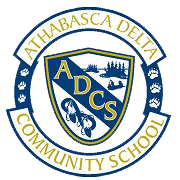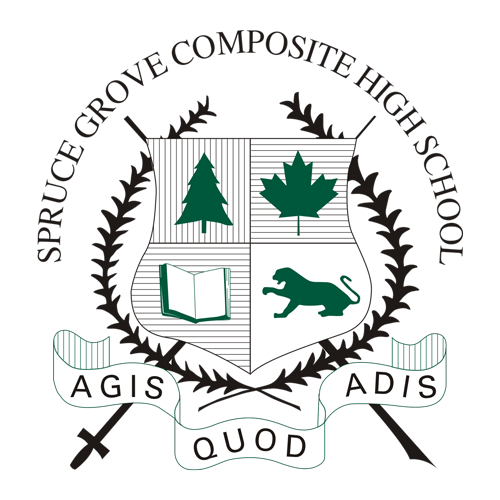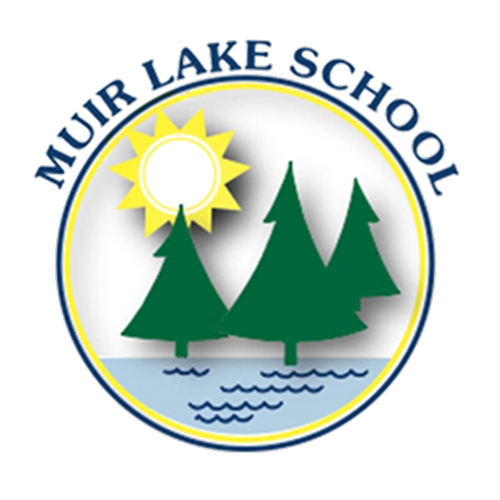AP 366: Search And Confiscation
Organization & Culture
Background
Section 8 of the Canadian Charter of Rights and Freedoms ensures that everyone has the right to be secure against unreasonable search and seizure. Police officers, as government agents, must act in a fair and reasonable way and usually require a warrant to conduct a search.
In schools, the guidelines regarding privacy are not as strict as for government agents, as teachers and principals hold a duty of care for student safety. Students must comply with school rules and codes of conduct; actions that violate established school codes may necessitate a student to become subject to a reasonable search.
Generally speaking, the following considerations shall be attended to:
-
A search shall be based on reasonable and probable grounds and carried out in a reasonable manner, and
-
There shall be enough proof to justify a search.
School personnel are required to act in three different capacities:
-
"In loco parentis" (designates of the parents and, therefore, assuming a role of trust and protection with regard to the student);
-
Education agent of the Board and the state (delegated to carry out the statutes and regulations of the state and the policies of the Board in maintaining a climate conducive to learning); and
-
Agents of the state (the school is not a sanctuary outside the law; crimes must be reported and the Child, Youth and Family Enhancement Act requires school personnel to report any child in need of protective services).
School personnel are expected to be primarily concerned with the best interests of all of the students in their care. Therefore, school personnel are expected to balance the rights of individual students (reflected in their role of "in loco parentis") with the rights of all students (reflected in their role as education agents and police agents).
Definition
A. Reasonable Grounds: Shall refer to the consideration for search based on:
1. Information received from one student considered to be credible;
2. Information received from more than one student;
3. A teacher's or Principal's own observations;
4. Any combination of these pieces of information that the Principal or designate considers to be credible.
Procedures
-
If suspected of wrongdoing, and/or within the responsibility of the school to maintain safety, students may be subject to search and/or confiscation of property.
-
Evidence will not be admissible in court if school authorities acted as agents of the police in those instances where the student was not given the full protection of her or his Charter rights1.
With respect to search locations:
-
A Principal, Assistant Principal or Acting Principal may conduct a search in the following locations:
3.1 Any school owned property, including desks, lockers or other student-specific storage locations;
3.2 A student’s vehicle, while on school property;
3.3 A student’s clothing, including the removal of jackets, the emptying of pockets, backpacks, knapsacks, purses, socks, shoes or other such containers;
3.4 Electronic file searches relating to Division-owned software, network or network- drive access; and
3.5 Cell phone or other electronic device content searches, as per section 22 of this procedure.
4. Physical searches of a student’s body beyond clothing are not to be undertaken by school personnel.
4.1 If, in the opinion of the school authority, a physical search is to be conducted, the police are to be contacted.
With respect to searches:
5. General class-specific locker inspections may be conducted for hygiene purposes for the protection of health, safety and general welfare of students, staff and school property;
6. Specific, individual searches related to item 3 (above) may be conducted when the Principal or designate has reasonable grounds to believe that a student is concealing a prohibited item; possession of which is a violation of the law, or of school rules:
6.1 Although not necessary, students may be given the opportunity to provide consent for a search and to be present, or to make voluntary disclosure of the suspected property;
6.2 Notwithstanding the danger presented by the property being sought, the student's age, record of conduct and the urgency of making the search without delay are circumstances bearing on the justification of requesting such consent; and
6.3 The inspection shall be conducted by two (2) adults, one of whom shall be the Principal, Assistant Principal or Acting-Principal.
1 The Supreme Court of Canada ruled on search and seizure in Canadian schools in the appeal of: R. v. A.M. (2008, April 25) SCC 19.
7. For the purpose of searching a vehicle, the Principal, Assistant Principal or Acting-Principal may request anyone to unlock the vehicle or to provide a key for the purpose of unlocking the vehicle.
7.1 If no one complies or is available to comply with the request under section 7 of this administrative procedure, then the Principal, Assistant Principal or Acting Principal may direct that no one access the vehicle for a period of time no longer than to the end of that school day if such denial of access is reasonably warranted in the circumstances.
8. Should any inspection result in the discovery of material that is inappropriate to a school building, the Principal has the authority to remove the material or seal the location for the purpose of seeking further counsel.
9. The student shall be informed as soon as convenient of any item(s) removed from the student's locker.
10. Only the Principal, Assistant Principal or Acting-Principal is authorized to conduct specific, individual locker searches.
10.1 Where a search is required at an off-campus site, the Principal or designate shall be contacted to conduct a search if warranted.
11. The Principal shall be entitled to terminate any License Agreement for the use of a locker(s) by a student at any time, and for any reason that the Principal considers reasonable.
12. If, at the end of a school term, or when a student has permanently left the school, unclaimed articles are found in a locker, items of value shall be bagged and marked, and retained intact for a period of thirty (30) days, after which time they may be disposed of as the Principal sees fit.
With respect to police searches of property:
13. If the police wish to search a student's person, personal property, or locker, then the school officials are to request that they obtain a search warrant, unless the urgency of the matter dictates otherwise.
14. Pursuant to the provisions of the Controlled Drugs and Substances Act, the police have broad search and seizure powers when drugs are involved. This means that the police have a blanket power of search when they have reasonable and probable grounds for believing the existence of drugs.
15. The Principal, Assistant Principal or Acting-Principal is to be present during all police searches.
16. Any property seized as possible evidence in a criminal proceeding shall immediately be turned over to police.
With respect to safety and the working with the police:
17. School personnel have a duty to uphold the law.
18. If crimes have been committed or if there are reasonable grounds to believe that students have committed crimes, the police may be contacted.
18.1 School personnel are to cooperate with police; as part of that cooperative approach, interviews of students by police may take place at school:
18.2 Where a student is to be interviewed at school by police, school personnel are to advise parents that interviews are to take place;
18.3 In the case of interviews by police officers, there is no general right for school personnel to be present unless the child is under twelve (12) years of age and the parents are not available;
18.4 Under the provision of the Youth Criminal Justice Act, a youth (twelve (12) years or older) is entitled to have an adult present during an interview by police. The right belongs to the youth and he/she determines and selects the adult he/she wishes to have present and, in fact, may waive the right to have an adult present at all;
18.5 School personnel may also indicate that they do not wish to be present; notably, in such cases, the youth is to be asked if the student desires another adult to be present; and
18.6 If an employee is designated as the adult, the employee shall keep a written record of proceedings, including the identity of the officer and his/her reasons for being at the school; a summary of these proceedings is to be kept by the Principal, in a place other than the student's file, until such time as it is deemed appropriate to destroy such information. Parents are to be made aware of the fact that this record has been made, and that it is available to them upon request.
With respect to police and the Youth Criminal Justice Act:
19. School personnel are obligated to comply with the provisions of the Youth Criminal Justice Act.
19.1 A police officer is to be questioned as to the urgency of the matter and advised that if it is not urgent, he/she is to attend at the residence of the student, outside school hours, in order to pursue his/her investigation. Notwithstanding the above, the Principal shall allow the officer to proceed under the following circumstances:
19.1.1 If the officer possesses a warrant (either for arrest or search);
19.1.2 If the officer is "in pursuit" after the commission of an offence; and
19.1.3 If the officer possesses specific blanket powers of search, etc. as defined by legislation (an example is drug offences);
19.2 If a student is to be arrested by police, whether under warrant or otherwise, the school is not to voluntarily deliver the student but is to advise the police of the location of the student, and escort the police/child services case worker to the location for the purpose of arrest or apprehension of the student;
19.3 In the event of arrest/apprehension, the student and police are to leave school premises immediately upon carrying out of the arrest or apprehension;
19.4 Where a student is to be arrested pursuant to the Youth Criminal Justice Act, school personnel are to advise the police that parents will be informed of the arrest and be given the name of the police officer and a number at which to contact the police officer;
19.5 The student has the right to attempt to contact a parent, legal guardian or relative in order to apprise them of the situation and to request that they attend; and
19.6 The student must be advised of his rights by the police officer.
With respect to acting as an agent of the state:
20. School personnel are obligated to comply with the provisions of the Child, Youth and Family Enhancement Act as outlined in Administrative Procedure 362 – Intervention Services.
With respect to confiscation of property:
21. Notwithstanding any of the previous procedures, school staff members, in loco parentis, have a duty of care with respect to the safety of students that may necessitate the confiscation of student property:
21.1 Student property may only be taken as a result of breach of school rules or the student code of conduct, or when the property is of disputed ownership:
21.1.1 Such property shall be retained in a secure manner and only for such period as may be prescribed by school rules in this regard;
21.1.2 Personal electronic devices for communication purposes shall be returned at the end of the school day unless prudent arrangements are made with the student’s parent;
21.1.3 If such goods are lost or stolen after being taken from the student, liability for such loss shall rest with the employee who confiscated the goods; and
21.1.4 Property that may compromise student safety shall only be returned to the student’s parent (i.e., knives, lighters, etc.).
With respect to cell phone or personal device searches:
22. The Principal, Assistant Principal or Acting Principal may conduct a search of a cell phone or personally owned electronic device, provided that a valid objective exists for the search;
22.1 Valid reasons are those listed in the Education Act, section 31 generally and section 31(e) specifically; and
22.2 The search shall not be random or blanket search of the entire contents of the personally owned phone or electronic device. (For example, if a student’s cell phone has been seized related to a video of an assault, the search shall be limited to videos and references to the assault).
22.2.1 The Supreme Court has not sanctioned random or blanket searches of the entire contents of a cell phone; a Principal, Assistant Principal or Acting Principal shall, prior to the search, have a specific idea of the material for which the search is being conducted.
With respect to search records:
23. The Principal, Assistant Principal or Acting Principal conducting the search shall maintain a detailed record of the search, including:
23.1 The purpose of the search (why the search was conducted);
23.2 The time and duration of the search (when and for how long); and
23.3 The extent of the search (what and where the search was conducted); and
23.4 Any other relevant details that contribute to the purpose of the search being conducted for a valid objective.
Approved:























